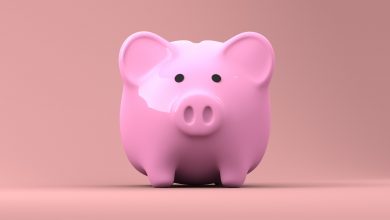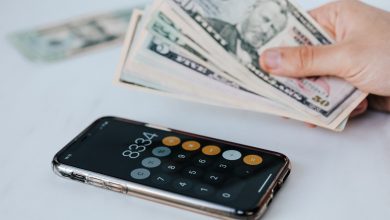How to Get SBA Loans for Women

It isn’t easy to be an entrepreneur, but if you’re also female, you are likely to face even more challenges to operate and own a business. Until H.R. 5050 passed in 1988, most states did not allow women to receive a business loan unless they had a male cosigner. With this legislation passing, resources are more readily available to female business owners. Still, it can be tough to get small business loans for women and the right financing.
If you want to start a business or are a female business owner, there is hope. You can find many resources available, and one of them is the Small Business Administration (SBA).
The SBA offers many resources to female entrepreneurs, which includes affordable loan programs. It’s important to know as much as you can so that you can get the funding you need to start or run your business.
What Is the Small Business Administration?
In 1953, the SBA was founded to offer assistance to small company owners. It provides many resources to help these entrepreneurs become more successful. Services can include counseling online or in-person, advocacy, and low-cost training. Of course, one of its most noted resources is the low-interest loan programs that are available.
Many times, business owners find it tough to secure a conventional loan from a credit union or bank, even if they have an account there. Such financial institutions often view a small business as a risk, even if there is a proven track record. Since traditional lenders want to avoid risky borrowers, it can be more challenging for a small business owner to get one.
While you can consider an alternative lender with fewer requirements, less favorable terms, and higher rates, this isn’t the best choice. You can turn to the SBA to receive a loan with competitive terms and rates, even if you have already been turned down for loans through other means.
How the SBA Can Help Women-Owned Businesses
Through the SBA, there is an Office of Women Business Ownership, which was created to empower and enable female entrepreneurs. You can find counseling and training available in many states. This section collaborates with other organizations to give women more resources. We’ll talk about some of them later.
Women can also find federal contracting opportunities through the SBA and Women-Owned Small Business Federal Contracting organization. Through the program, certified businesses that are women-owned can then compete for federal contracts.
There is no discrimination from the SBA, so women-owned companies can take advantage of what it has to offer. Therefore, small business loans for women are provided, as long as the woman meets all of the requirements set forth by the SBA. Such a loan can open up other funding opportunities so that women can grow or launch their companies.
You should be aware that the SBA isn’t a lender. The organization has, instead, created guidelines to keep repayment terms flexible and interest rates low. The money is loaned through an intermediate. This can be a credit union or nonprofit lender, as well as others. These lenders are more willing to help you now because the SBA takes the risk away. It guarantees a large percentage of the loan. Therefore, lenders can loan to a small business without as much worry.

Qualifying for an SBA Loan
Small business loans for women can be easier to find through the SBA. If you’re female and don’t qualify for a conventional loan, you can still utilize the programs from the Small Business Administration.
Many times, a lot of capital is needed to expand or start a small business. You need to buy equipment, lease or purchase the commercial property, and have money for daily expenses. Most entrepreneurs can’t handle such a financial burden alone, and the SBA can be highly beneficial.
As long as you meet all of the requirements, you can apply for any of the SBA loan products offered. Of course, you need to be considered a small business through the SBA. It limits your annual revenues, number of employees, and even the business’s net worth.
You must also have a company based in the US. Many of the loan programs are available only to for-profit businesses, but some options are open for nonprofit childcare centers. Some industries are not eligible to utilize SBA loans, and these include:
- Gambling companies
- Government-owned businesses
- Any illegal business/industry
- Religious institutions
Keep in mind that your personal credit score is going to be an approval factor when applying for a loan through the SBA. While credit requirements can vary between lenders, most intermediaries of the SBA require credit scores in the mid-600s. Some may want a score of 700 or better. Also, the credit report cannot contain any:
- Tax liens
- Recent bankruptcies
- Government loan defaults
If you have negative items on your report, you may need to explain them to the lender. Depending on how negative these things are, you might be disqualified from getting a loan.
It is also important that you show you make enough revenue to pay the loan payment each month. The lender is going to evaluate your current debts and revenue during the approval process to make sure you can afford this loan.
Sometimes, the lender is going to require that you pay a down payment or put up some collateral to secure your loan. Fees may also be part of the deal and can include:
- Origination fees
- Closing costs
- Guarantee fees
- Loan service fees
- Packaging fees
It is important that you have invested your own money and time into the company to qualify for small business loans for women through the SBA. This means you’ve exhausted other financing options first.
What If You Have Bad Credit?
One of the drawbacks here is that you need a solid and good credit score to get an SBA loan (and almost every other type of loan). The SBA doesn’t set the score requirements, but it is still an important factor for the intermediary lenders.
Most lenders look for scores of at least 620, but 700 is preferred. If you do fall below the 620 mark or have negative items on your report (foreclosures, collections, bankruptcies, etc.), you have a lower chance of getting an SBA loan.
Even if that happens, you do have some options. The first thing you should do is request your credit report and make sure there are no inaccuracies. Then, you should work toward paying off your debts and building your score higher. Once you meet the SBA loan requirements, you can reapply.
While this is a lengthy process, it is important now and in the future. Having an excellent credit score is going to open up other affordable financing options for you, which includes SBA loans. If you have a pressing need for financing, it is possible to go to bad-credit borrowers, but you should be wary. These options have higher interest rates, less favorable terms, and are much more expensive.

Types of Small Business Loans Available to Women
Now that you understand SBA loans a bit better, it’s time to find out which ones work best for businesses owned by women. While any SBA loan product is available to a female entrepreneur, there are three that stand apart from the crowd. These include: Microloans, CDC/504 Loans, and SBA 7(a) Loans.
SBA 7(a) Loans
This type of loan is one of the most popular for small business owners. Through the program, you could receive up to $5 million, which can be used for almost anything relating to the business. That includes expanding an existing business, purchasing a building, paying startup costs, and refinancing your current debt.
The repayment terms can be up to 10 years for working capital and are based on your ability to repay the loan. You can also get terms up to 25 years for a loan used to buy commercial real estate. The maximum interest rate for this loan is prime rates plus markups of anywhere between 2.2-4.75%.
Depending on the amount you need, collateral may be required. Of course, if you are a woman and own the business, you could also qualify for the Community Advantage loan through the SBA. With it, you could get up to $250,000, which can be used for almost anything business-related. Repayment terms are the same with interest rates at prime plus 6%.
Microloans
If your capital needs are smaller, a microloan may be suitable. You can get up to $50,000 with this program, though the average is about $13,000. They’re provided through a nonprofit lender and can be used to buy fixtures and equipment, as working collateral, or to pay for improvements.
The repayment terms are six years, with interest rates varying based on the cost of funds for the lender. Lenders can add up to 8.5% when distributing the loan.
CDC/504 Loans
If you’re updating your facility or buying commercial real estate, you may want to apply for the CDC/504 loan. This option works differently than other programs through the SBA because there are two lenders involved.
The money you borrow can be used to buy long-term equipment, land, buildings, new construction costs, updating the facility, and refinancing debts that are connected to buying/updating facilities and equipment.
You work with a certified development company (CDC) licensed through the Small Business Administration, and it provides 40% of the project costs for up to $5 million. Then, a private lender provides 50% of the project costs. You pay that remaining 10%. Repayment terms on this type of loan can be 10 or 20 years. The interest rates vary depending on the lender and the US Treasury.
Small business loans for women can be hard to come by, but it isn’t impossible. Options are available through the SBA and other means. It might be a good idea to go through the Small Business Administration so that you have many choices available and can pick the one that best fits your needs. There are plenty of resources if you know where to go. By taking advantage of what’s available to you, it’s possible to start, grow, or build your company.



